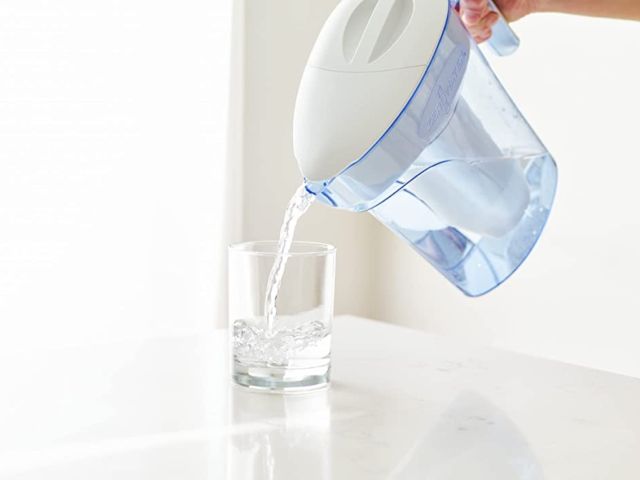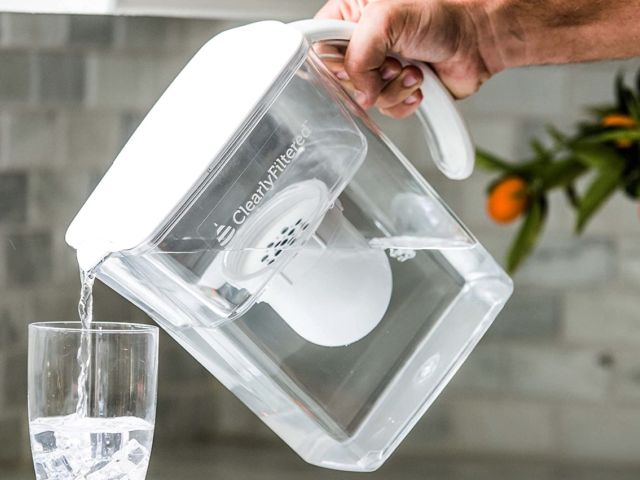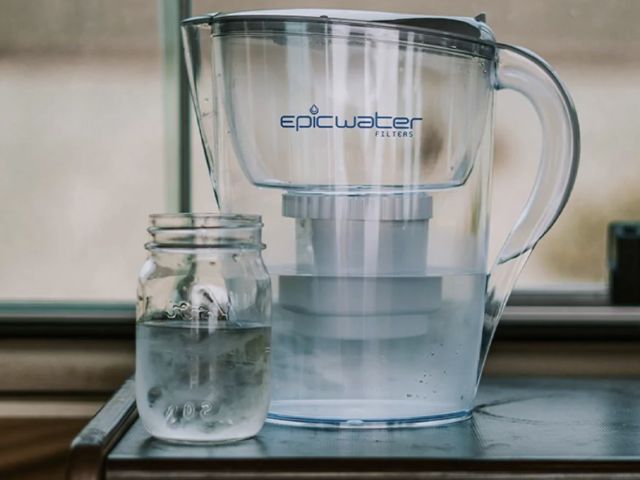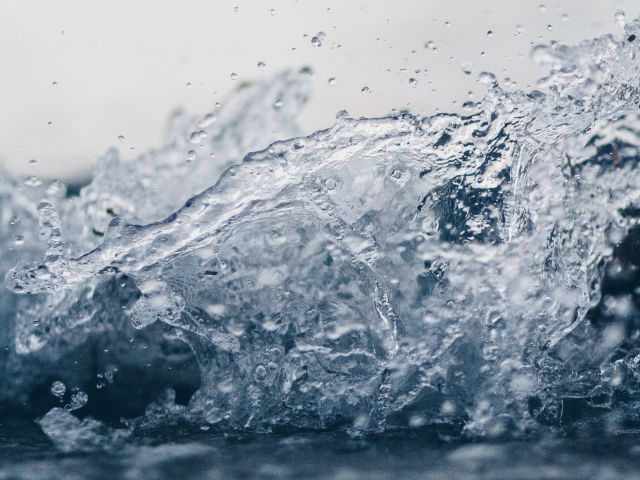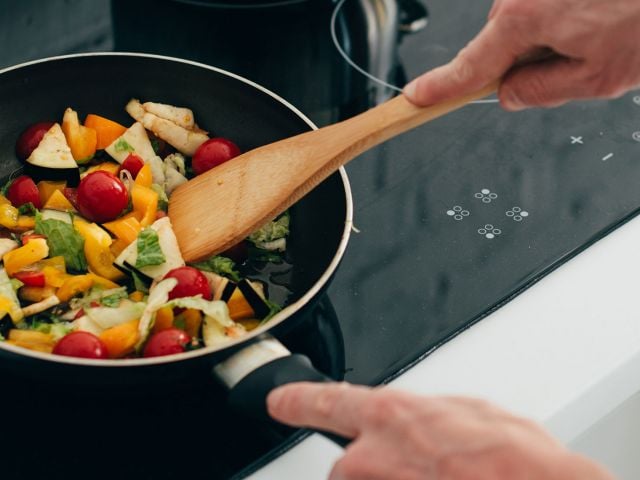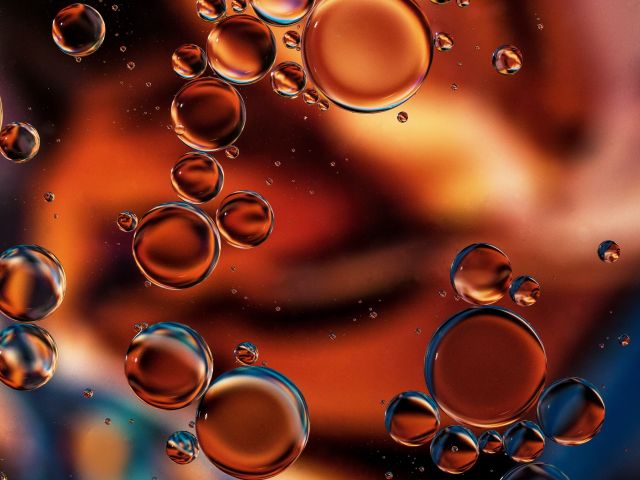Overview
- EWG is recommending the most effective water filters for reducing PFAS.
- Several water filter brands were able to eliminate some PFAS.
- Affordable water filter alternatives also get some PFAS out of water.
What’s in your water? The “forever chemicals” known as PFAS contaminate the drinking water and groundwater of more than 3,000 communities, affecting an estimated 200 million Americans. Simply drinking a glass of water from your kitchen tap may expose you to these toxic substances – but there are steps you can take to protect yourself and your family.
One way to reduce harmful forever chemicals in your home is to use a water filter rather than drink straight from the faucet. But with so many filters on the market, and many marketing claims about eliminating PFAS, it can be hard to know which one is best for your home.
EWG’s guide to PFAS filters is based on our experience with several brands.
EWG staff bought and used 10 different types of water filters, testing them in real homes using their water.
We measured how much each water filter reduced forever chemicals. To bring you our recommendation, we also accounted for several other important qualities in our top selections. including the cost of the filter and its potential useful life, among other considerations.
Best overall
Four water filters reduced the PFAS in the water used in our testing by 100 percent or came close, offering a great boost to your efforts to protect your family’s health. They include:
EWG is a participant in the Amazon Associates Program. As an Amazon Associate, EWG earns commission from qualifying purchases. The affiliate commission collected is used to support EWG’s nonprofit mission.*
Recommended by EWG
In considering water filters worthy of our recommendation, we selected those products that lowered the PFAS we measured by 100 percent, or close to it. We’re also highlighting filters that fell short of this target but can still reduce PFAS.
Although some of the filters did not achieve 100 percent reduction in PFAS measured in the water samples, they did eliminate 100 percent of PFOA and PFOS, two of the most notorious forever chemicals.

LONGEST FILTER LIFE
Travel Berkey Water Filter
KEY STATS: PFAS REDUCTION: 100% | INITIAL COST: $344.00
OVERALL VALUE: FILTER LIFE: 8+ YEARS (6,000 GALLONS) | ONE-YEAR COST: $344.00
This is an expensive filter. But it does offer a few perks for that large upfront cost, including 100 percent elimination of forever chemicals measured in these tests and a useful life of many years.
Pros: Non-plastic design; large water capacity; 100 percent PFAS reduction and exceptionally long filter life, at more than 8 years, if using 2 gallons per day.
Cons: Very high initial cost.
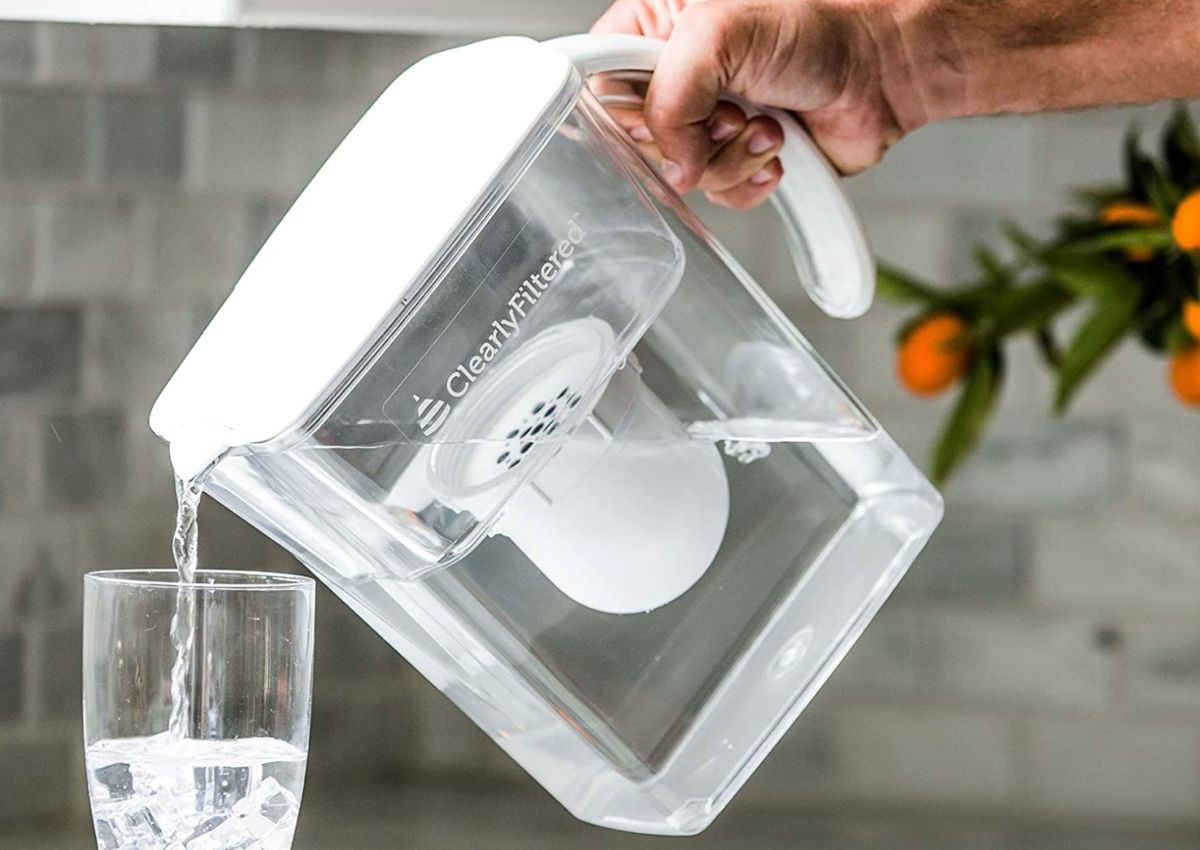
HONORABLE MENTION
Clearly Filtered Water Pitcher with Affinity Filtration Technology
KEY STATS: PFAS REDUCTION: 100% | INITIAL COST: $90.00
OVERALL VALUE: FILTER LIFE: ~50 DAYS (100 GALLONS) | ONE-YEAR COST: $436.50 (INITIAL COST + 7 FILTERS PER YEAR)
One of three filters tested that achieved a 100 percent reduction in PFAS from drinking water, it nevertheless takes a fair amount of time to use – it took twice as long as some other brands for the water to pass through the filter into the pitcher.
Pros: Total PFAS elimination; clear design makes it easy to track how much water remains; the large pitcher size means refilling is less frequent.
Cons: EWG user experience suggests it can be tricky to install the filter correctly and make sure it is tightened to the reservoir; the water passes slowly through the filter; filters need to be pressure-primed at the faucet, which is difficult and can be annoying – and not accessible for those with upper body or hand strength limitations.
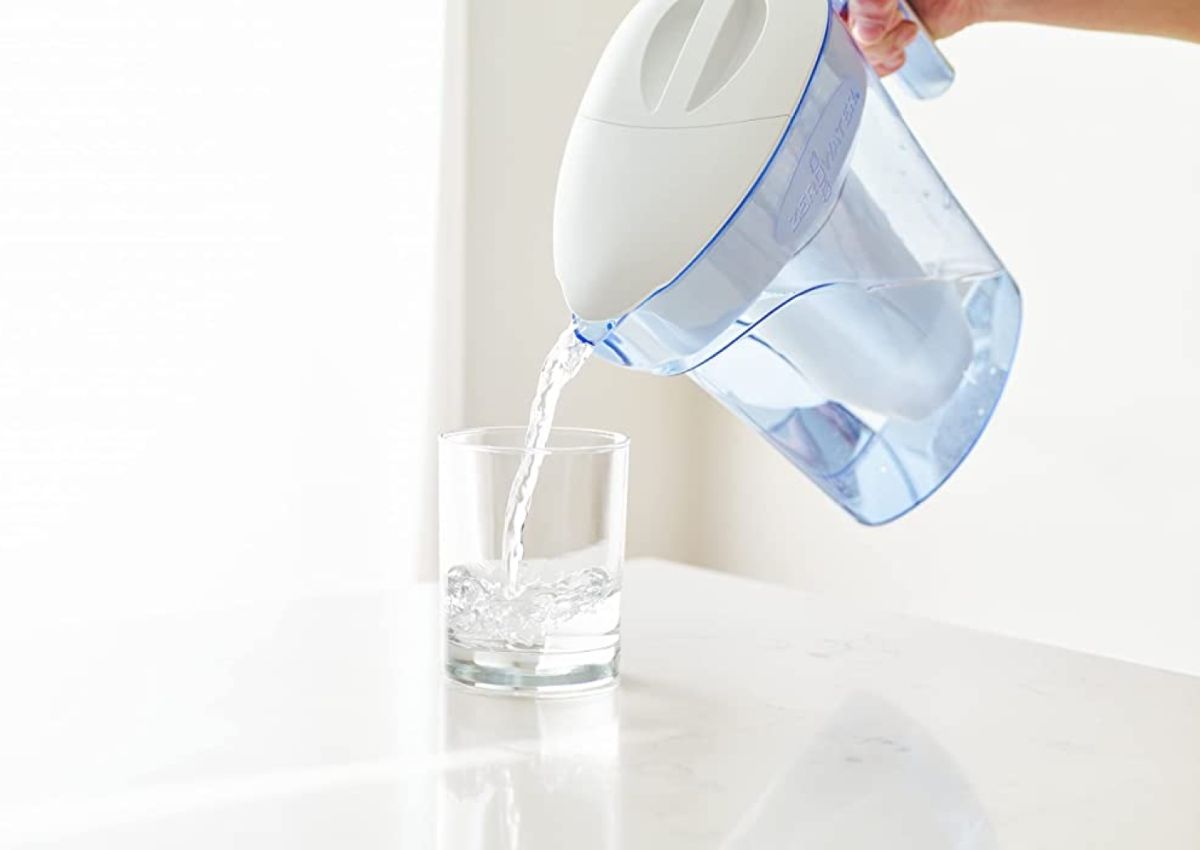
LOWEST INITIAL COST
Zero Water 7 Cup 5-Stage Ready-Pour Water Filter Pitcher
KEY STATS: PFAS REDUCTION: 100%. | INITIAL COST: $24.99
OVERALL VALUE: FILTER LIFE: ~10 DAYS (20 GALLONS). | ONE-YEAR COST: $646.06 (INITIAL COST + 37 FILTERS/YEAR)
The third filter tested eliminated 100 percent of the forever chemicals. The sale price makes it one of the filters with the lowest initial cost for an average family of four consuming 2 gallons per day – it cost our tester less than $25 to buy the filter and pitcher.
Pros: 100 percent reduction of PFAS and low initial cost; replacing filters is simple and quick.
Cons: The tradeoff for the low upfront cost is that the filters have a short life and must be replaced often, which means costs soon add up; the water reservoir is small and you'll need to frequently refill the pitcher.
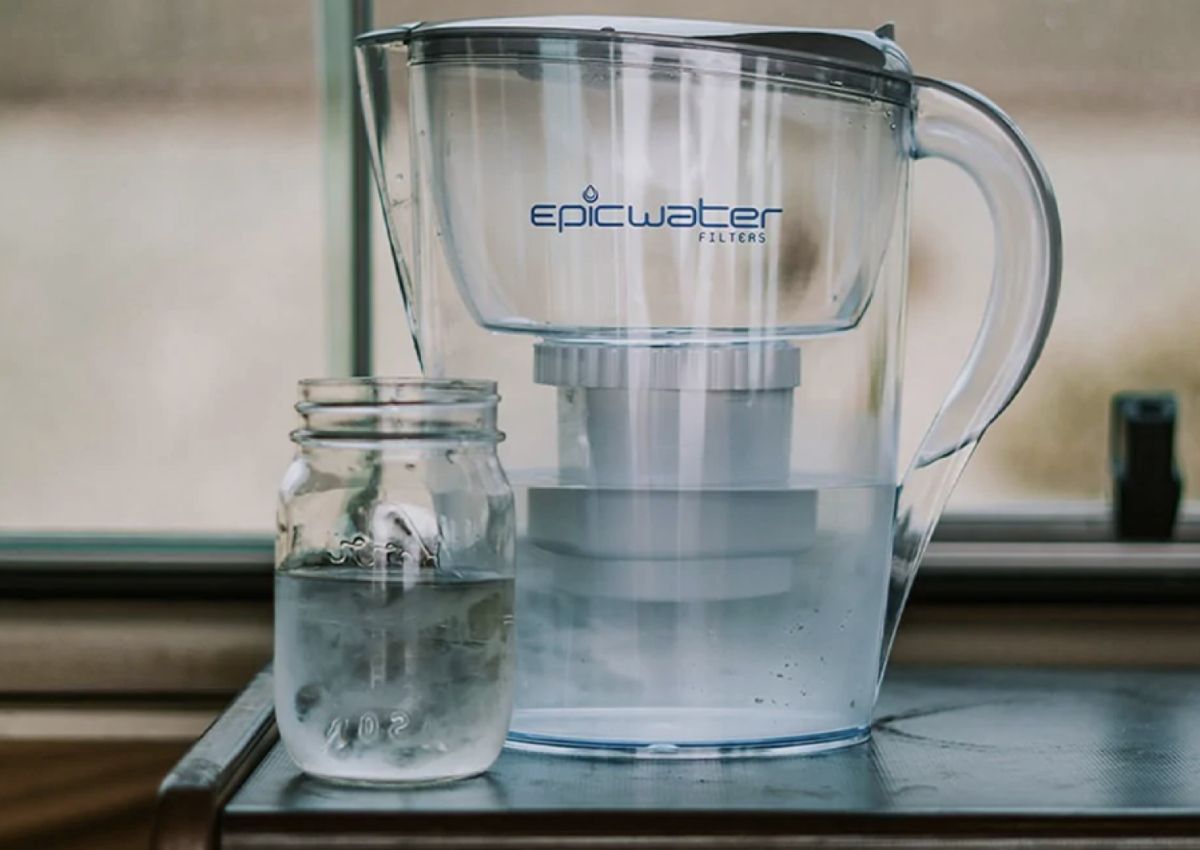
EWG TESTER FAVORITE
Epic Pure Pitcher
KEY STATS: PFAS REDUCTION: 98% | INITIAL COST: $70.00
OVERALL VALUE: FILTER LIFE: ~75 DAYS (150 GALLONS) | ONE-YEAR COST: $247.87 (INITIAL COST + 5 FILTERS
Our tester’s overall favorite to use, this filter’s design is simple – it has a large reservoir that is easy to access and refill. Replacing filters is also straightforward. The filter removed about 98 percent of forever chemicals in the drinking water tested.
Pros: The longer filter life of 150 gallons means paying for fewer replacement filters, and it’s less expensive in the first year than the three filters that reduce 100 percent of the PFAS.
Cons: This filter has a higher initial cost than some other varieties, though cost of the replacement filters is mid-range.
Other PFAS water filters we tested
The other products we tested, below, didn’t achieve our standard of 100 percent reduction in PFAS, or close to it. But they have their own benefits, such as lower cost.
PUR PLUS 7 Cup Pitcher
This filter achieves a relatively strong PFAS reduction of 79 percent. But the filtering time was among the slowest. It also has a tiny reservoir, so you’ll need to refill it frequently.
Pros: Removes most PFAS from drinking water; intuitive design makes it easy to use and refill even with one hand; replacing filters is not complicated; and it’s low cost.
Cons: Based on EWG user experience, the PUR Plus has extremely slow filtration times, compared to pitchers of a similar size, and the dark color of the pitcher makes it hard to track the water level.
Brita Filter Pitcher, 6-Cup
One of the most affordable filters on the market – you won’t have to spend much upfront to get this filter running, and replacing the filters is cheap. And though our tests showed it reduced just 66 percent of PFAS in water, that’s better than nothing.
Pros: Low cost at start and over the lifetime of a filter, and easy to use.
Cons: Smaller pitcher means plenty of refilling, and solid color hides the water level.
Aquagear Filter Pitcher
This water filter achieved about 65 percent elimination of forever chemicals, but it can be much harder to use than other brands.
Pros: Comes with a bag and free shipping labels to return used filters to a free recycling program; larger pitcher and reservoir means not refilling as often.
Cons: Based on EWG user experience, this filter might be too difficult for some people to operate, as it requires being pressure-primed at the faucet, which can be a complicated and messy process; the lid makes it hard to know when it’s getting full.
Amazon Basics 10-Cup Water Pitcher
Based on the costs in the first year, this is the cheapest filter of those we tested. But though the 54 percent PFAS reduction it achieves is adequate, the Brita filter does a better job at a similar cost.
Pros: Large reservoir and pitcher means refilling less often; the filter is clear, so it’s easy to check the current water level; preparing the filter for its first use is simple.
Cons: When it’s time to refill the pitcher, you must remove the entire lid, which is a time-consuming process, then replace it once the pitcher is full.
Brita Elite Filter
If you install this brand’s Elite filter, overall PFAS reduction drops to just 22 percent.
Our tester also found the Elite filter didn't seal well, so leaks could be one reason this water filter had the lowest overall reduction of all the filters tested.
Pros: Minimal effort required to prepare the filter for use and replace it.
Cons: As with the regular Brita filter, the pitcher is small, so you’ll have to refill often; the design isn’t clear, so it’s harder to check how much water is left; it achieves low PFAS reduction.
Seychelle Gen 2 Dual pH20 Pure Water Pitcher (64 oz)
This is one of the most expensive filters of those tested by EWG staff. But the very average PFAS reduction of about 48 percent doesn’t justify the higher cost.
Pros: Its large size means you won’t have to refill this pitcher too often.
Cons: Hard to use with a filter that needs to be pressure-primed at the faucet, which our tester found messy and difficult. The reservoir design reminded the tester of an airplane toilet – it’s impossible to see when it’s getting full, which can lead to overfilling and spillage.
* In furtherance of its mission, EWG tests products on the market to understand and expose chemicals in food, water, toys and cosmetics. Companies do not pay EWG to test their products. To help consumers in accessing healthier and safer products, EWG may provide a link to purchase a tested product on Amazon. EWG is a participant in the Amazon Associates Program. As an Amazon Associate, EWG earns commission from qualifying purchases. The affiliate commission collected is used to support EWG’s nonprofit mission.

